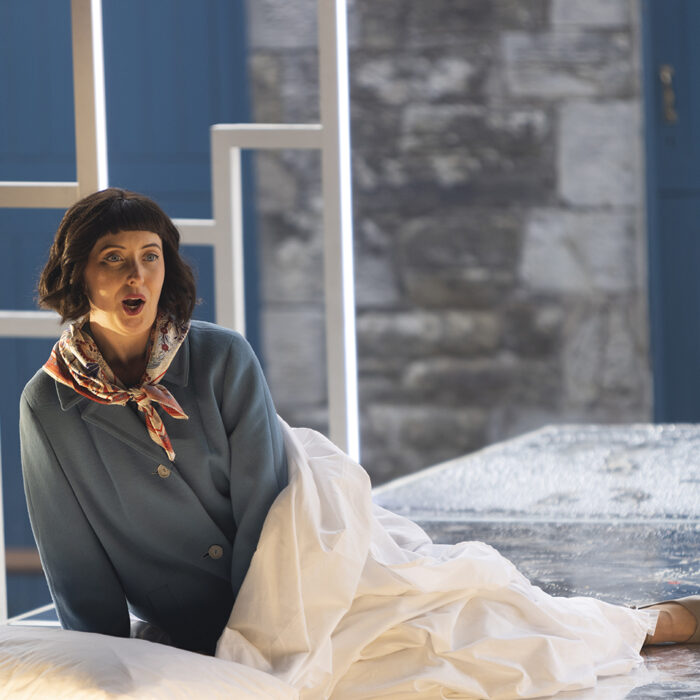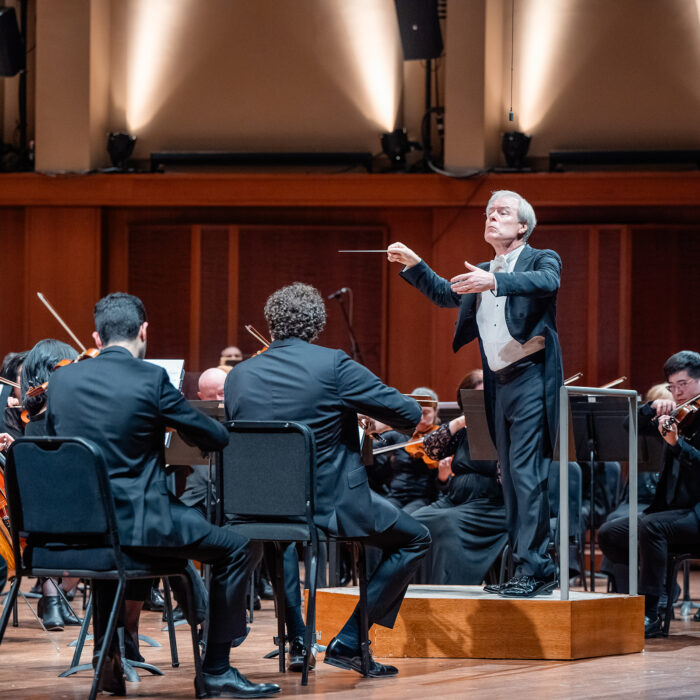
Editorial: The Met Opera ‘Deal’ [Un]Explained
Progress At the Met Remains Unclear & the Results Are Unpredictable
By Polina LyapustinaAfter writing my initial article at the beginning of January 2021 regarding the conflict at the Met, I found that a lot of readers had little understanding of what was actually going on. How come the Met workers have been deprived of their sources of livelihood for months, and then, why didn’t they want to accept General Manager Peter Gelb’s offer, which would presumably return said livelihood to them?
And I got a bright idea — I could explain the whole situation and that deal to the audience, and therefore they would be able to provide proper (more conscious) support to musicians and maybe even somehow impact the decisions of the administration. I collected that little bit of information from open sources and contacted the Orchestra committee for more details. I was given that information as deep background and told that it could not be published. At that time, I honestly couldn’t understand why anything of what was said could not be published, since it was simple and clear, nothing controversial or provocative.
I remember sitting at the desk in front of my laptop with an open empty draft titled “The Met Deal: Explained.” Eager to help musicians, but having no right to publish anything, I suddenly added this little [Un] to the title, as a tiny bitter joke.
And today, after observing the last 10 weeks, I understood that if I would have put all the facts together on paper at that time, I would probably conclude it with the inevitability of what happened this week. The “deal.”
Surely such an article wouldn’t be to the Union’s advantage. But, I guess, it could be to the advantage of the musicians and other Met’s workers to have put out the information out in the open for people to understand the machinations (or lack thereof). So, to some extent, because of journalistic ethics, I ultimately betrayed the interests of the Met’s workers. And I deeply apologize for that today.
Last week marked one year since the Met announced its closure for musicians and staff, during a musical rehearsal of Verdi’s “Simon Boccanegra.” The measure that was only meant to be a “short intermission” has now lasted over a year. But instead of a unified front that would enable us to fight through this pandemic together and an organization once united by the power of music and the loyalty of its audience, the Met faced with the fallout of its social foundation. During this crisis, people at the Met forgot about the theatre, started to attack each other, and care only about themselves. And the public has noticed.
Peter Gelb has been hailed as the source of all evil. The bad guy who doesn’t pay his workers, who were thus scripted as victims in all this. But I’m sick of this description. I don’t believe there’s any good or bad side to this conflict. Peter Gelb is and was originally meant to be the General Manager of this multi-million institution, which during this time period lost most of the sources for the company’s subsistence. And so he made his offer, which while undeniably unfair and unkind to the people most affected by it, was also dictated by the laws of the market. From the perspective of the economical sustainability of the institution, which might be secondary for the public and musicians but primary for the general manager, Peter Gelb did what was expected of him. For this reason, he could and has stood pretty calm and confident despite the attacks of the opponents. To be clear, that’s not to say he did enough to help the workers; one might imagine a more creative GM finding workarounds. But it might not be so cut and dry as to simply pin the entire disaster on him as some Lex Luthor looking to destroy the musicians’ livelihoods out of simple corporate greed (as tempting as that always is whenever the Met has some sort of artistic or financial crisis).
The economical model of the Met set the stage in this conflict and then, there was a time to play, which initially was possible to do together (as it will now happen). But in reality, instead of negotiating, what resulted was a loud PR war.
Welcome to Today
This week brought some news about the progress in the negotiation between The Met Opera and their Orchestra. After four months of very aggressive and loud resistance from Labor Union Local 802, who runs the orchestra labor contracts, the offer of Peter Gelb was finally accepted. Surprising? Not really. When the anniversary of the Met’s closure came and went and the Union, which was very vocal for the last 365 days, made no aggressive gesture, you knew something must have been brewing.
According to the Met’s release, the musicians of the orchestra have voted to accept a deal. After a four-month informational war, I can imagine how many questions this sentence can provoke in the readers’ minds. Was it really their decision? Why did they suddenly changed their mind? Even I caught myself thinking “What a proud democratic formulation!” But I guess, this constant mistrust of the Met is just a consequence of the recent PR-war. And once I got rid of such prejudice, this phrase turns out to be probably the most honest one I have heard throughout this conflict.
Back in January, some musicians I spoke to personally mentioned that they might be thinking about accepting the offer but were constantly promised a better deal. The only problem was that a better deal was always far from the economic reality of the Met. Which, yes, surely means millions in the budget, but also contains tons of obligation to keep the huge institution alive. So this dream-deal the union was trading about never really felt like more than a pipe dream. And I wonder whether any of it was explained to musicians properly. But these are assumptions based on my past investigation as today (three days after accepting the deal) neither the Orchestra Committee nor Local 802 have made any comments.
But the plot thickens. On March 18, Yannick Nézet-Séguin, who was quiet on this topic for most of the year (until he started acting out in the interest of the orchestra a couple of months ago) spoke out regarding the Met Orchestra. In his letter, he suddenly called the lack of pay “increasingly unacceptable.” To which I ask, wasn’t it ALWAYS unacceptable? What changed to make it increasingly unacceptable?
Well, the truth is that what changed was that now it’s an absolutely safe time to speak out because the conflict has passed its peak. And these words are simply that — just words. They might be forceful, but they won’t push the administration to change anything, because there is nothing to change. They don’t really empower the orchestra for real because the decision was already made on a deal that was inevitable. And they imply the only possible and totally predictable reaction that contains two parts: “Thank you, dear Maestro” from the orchestra and “We share Yannick’s frustration over the lengthy closure and the impact it has had on our employees” from the administration. Win-win. Making everyone happy seems to be another great talent of the Artistic Director of the Year (according to this year’s Opus Prize).
But what will be hidden in the comment sections of the article and social media and will never reach the headlines is “Too late.” That is what some musicians express now, and probably not only musicians. The thing, I repeated in every column about the conflict at the Met. Why was not possible to say that (just to say!) in November when the musicians were already living without any income for six months and had just received a very controversial offer from the Met. Why not in January, when the orchestra protested against outsourcing the musicians in Europe, and their Artistic Director paid off with a generous donation? Why now, when everything is solved? It’s not a sign of goodwill, it’s Politics. Another game at the highest levels. And that’s what always kept and will keep the workers on the losing end of these games. Even when they seem to be winning, it’s not really them that came out on top.
When I read about the letter in the morning, I couldn’t even get it straight. It didn’t seem wrong, but simply unnatural, and then…
Do It in Order
Wasn’t it all meant to happen in reverse order?
What if they would try to negotiate before accusing each other? Don’t say they did. The exchange of claims and mutual rejections are not quite negotiations. Or could the Artistic Director, who now realized the plight of musicians, be involved from the beginning and support negotiating progress? What would be different? Instead of villains and victims, PR strategies, and smiley faces on Instagram, we could have the Met. It would undoubtedly be stuck in a crisis, with many problems to solve, as imperfect as such a major institution could be, but still whole. And all the energy recently spent on ranting, could be used for improvements. Step by step. With nothing special to brag about. Just work. They had a year for it.
Meanwhile, there’s another player in this game. Let’s not forget that AGMA is now on their sixth week of bargaining with the Met, and this week, they centered around Diversity, Equity, and Inclusion initiatives.
Before, they have devoted days to the specific concerns of Stage Directors, Dancers, Choristers, and Soloists. They have talked about new safety regulations, stability, and guarantees for workers. Have you heard about that a lot? I bet you haven’t.
And yet, this is the only real work done in this field so far, and it will be used as a basis by others, including the Local 802 (and hopefully, IATSE one day too).
Weeks or even months later, we may finally see them all (management, musicians, stage-hands) at the same table. It’s likely that when they do come together, the negativity and tension of the last year will undoubtedly come to the service, but perhaps at some point, they might stop and reflect together on how to avoid a repeat? It has to happen. Because otherwise, we will eventually lose the Met. And in that case, no one will have a right to say it was only Peter Gelb’s fault.


